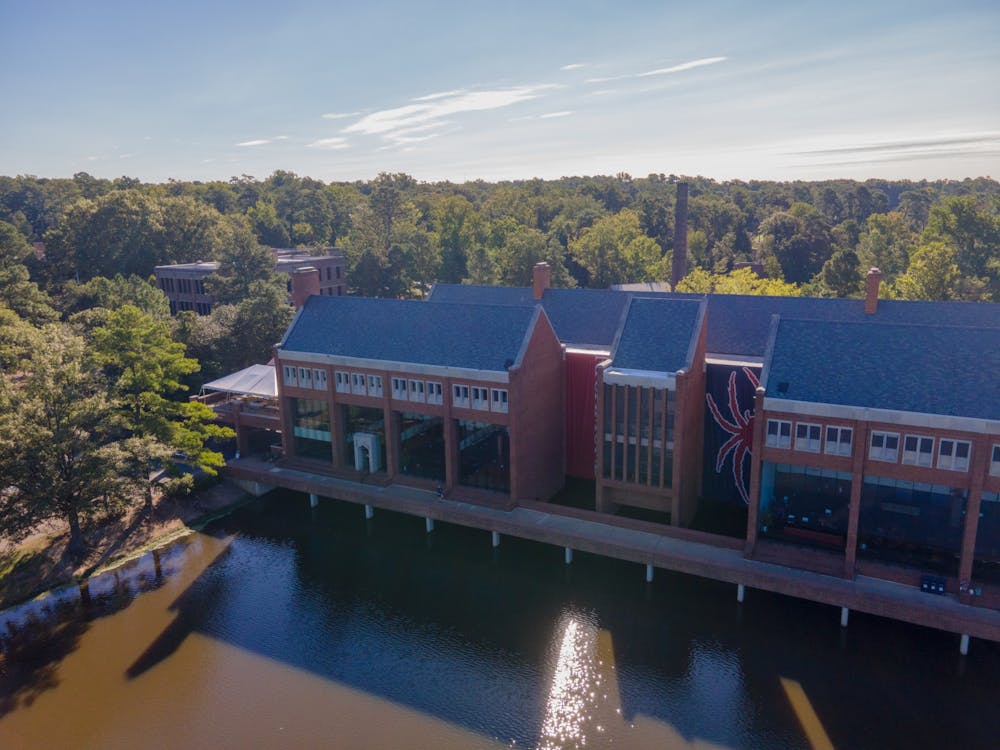Editor's note: The Collegian applied for SOBAC funding and received $12,238.39 of its requested $12,277.39. This relationship does not determine The Collegian’s coverage in any capacity.
Many registered student organizations at the University of Richmond that applied for Student Organization Budget and Appropriations Committee funding received more than they requested for the 2022-23 year.
Of the 84 SOBAC eligible organizations on campus, only 42 requested funding, Vittoria Tripp, assistant director for student organizations, said. The number of organizations requesting funding has decreased in recent years because of the pandemic and the lack of full events and programming being scheduled, she said.
“I don't think it's necessarily a negative thing that not as many organizations applied,” she said. “I think it just indicates that a lot of them have enough funding that they know will carry them through to the next year and they didn't need anything additional.”
SOBAC was given $150,000 to allocate – and distributed $117,703.95 to the 42 organizations. The remaining $32,296.05 will still be available as contingency for organizations next year and will potentially be made available for events that will happen in the new student lodge, Tripp said. Organizations that need more money throughout the year are encouraged to apply for contingency funding.
SOBAC is a joint initiative between the Westhampton College Government Association and the Richmond College Student Government Association designed to allocate funds to organizations annually to enhance the quality of student life on campus, according to the website.
A committee consisting of seven representatives from WCGA and seven representatives from RCSGA evaluated each organization’s application. Co-chaired by seniors Ushna Khan and Kevin Spear, the committee recommended an allocation amount for each organization based on the application and subsequent evaluation, Spear said.
The proposed allocation is calculated by determining an organization’s demonstrated need and subtracting that from its balance forward. The demonstrated need takes the difference between an organization’s revenue and its eligible approved expenses. Tripp oversaw the process in an advisory capacity, providing historical context and data to the committee to aid in their decisions, she said.
“It’s really important that this is a student-led, student-run process from top to bottom,” she said.
Organizations requested SOBAC funds through applications submitted on March 4. Funding can be requested for several categories — operating expenses, durable goods, publications, programming and events, apparel and travel. The most requested category for funding is for programming and events, Tripp said.
The Asian American Student Union (AASU), which received 108.64% of its requested allocation, plans to use its funding for programming and events as well as travel, sophomore Anujin Ariunbold, administrative chair, said. She hopes that AASU will be able to travel to the national East Coast Asian American Student Union conference if it is in person next year -- which the organization attended at the University of Pittsburgh two years ago but has been virtual for the past two years due to the pandemic, she said.
This year, SOBAC allocations included a one-time inflation increase for all food costs that were requested and approved, Khan said. This meant that some organizations received upwards of 200% of their requested funding approved, she said.
Enjoy what you're reading?
Signup for our newsletter
“Most of the organizations that received a huge increase in funding were asking for less money according to our food funding requirements,” she said. “But this was something we did specifically for this year since we had more money in the pool and also we wanted to add an inflationary charge for COVID as well.”
Previously, SOBAC funded $3 per head for non-cultural food and $6 per head for cultural food, Khan said. But this year, the committee funded $6 per head for non-cultural food and $8 per head for cultural food, she said.
"It's nice to see organizations planning full events again and really get back up and running," Tripp said.
Contact Managing Co-Editor Ryan Hudgins at ryan.hudgins@richmond.edu.
Support independent student media
You can make a tax-deductible donation by clicking the button below, which takes you to our secure PayPal account. The page is set up to receive contributions in whatever amount you designate. We look forward to using the money we raise to further our mission of providing honest and accurate information to students, faculty, staff, alumni and others in the general public.
Donate Now



